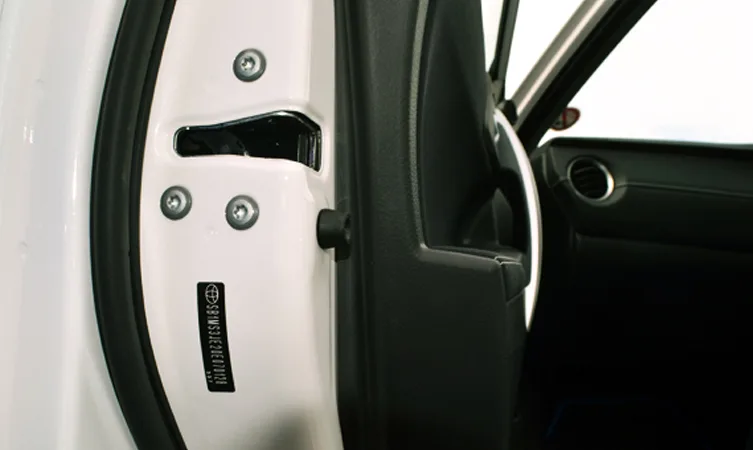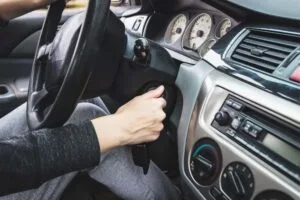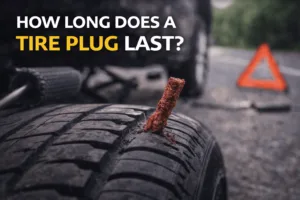Let’s say you’re looking at a used car that seems like a good deal—but something feels off. Maybe you only have the VIN and want to double-check the history. Or maybe you were in a fender bender and only managed to catch the VIN, not the plate.
There are also times when you’re tracking a vehicle you once owned, trying to help law enforcement, or dealing with a parking issue. Whatever the case, figuring out if you can find a license plate number from a VIN can be a tricky task.
Imagine you’re dealing with a 2015 Honda Accord—clean, simple, and popular. It’s not flashy, but it’s reliable. You’ve got the VIN number from a report or bill of sale, but not much else.
Can you use that VIN to track down the plate number? The short answer is maybe, but the full picture is a bit more complicated. Let’s walk through it together.
What Exactly Is a VIN?
The Vehicle Identification Number, or VIN, is like a car’s fingerprint. No two vehicles have the same one. It’s a 17-character alphanumeric code assigned to every vehicle by the manufacturer. The VIN tells you a lot about the car—year, make, model, country of origin, engine type, and even the plant where it was built.
You’ll usually find the VIN on:
- The dashboard, visible through the windshield
- The inside edge of the driver’s door
- The engine bay or firewall
- Vehicle registration and insurance documents
But while the VIN is public, it doesn’t automatically reveal personal info like who owns the car or what the license plate number is. That’s where things start getting more nuanced.
Can You Find a License Plate Number from a VIN?
The quick answer? Not easily—and not without proper authorization.
In most places, you can’t freely access someone’s license plate number just from a VIN because it’s considered personal information. License plate data is usually tied to the vehicle’s owner and protected by privacy laws, such as the Driver’s Privacy Protection Act (DPPA) in the United States.
That said, there are certain cases where it is possible to obtain the license plate tied to a VIN, but it usually requires:
- A valid legal reason
- Access through official or authorized services
- Cooperation with law enforcement or licensed investigators
Legal Reasons You Might Need to Do This
There are a few legitimate reasons why someone might need to find a license plate number from a VIN:
- Accident investigation: If the other vehicle fled the scene but you noted the VIN.
- Title recovery: If you’re trying to register or title a car without having the full records.
- Repossession or lien tracking: Lenders or recovery agents may use the VIN to match license plates.
- Vehicle history checks: Especially for auctions, estate sales, or abandoned vehicles.
- Law enforcement support: In cases of theft, fraud, or legal disputes.
If your reason falls under one of these, you’re more likely to succeed with the right help.
Can Regular People Do This on Their Own?
For the average person, this isn’t a simple DIY task. Publicly available VIN lookup tools—like Carfax, AutoCheck, or the National Insurance Crime Bureau (NICB)—can show you:
- If a car has been reported stolen
- Accident and salvage history
- Past ownership changes
- Recalls and repairs
But they don’t show license plate numbers due to privacy concerns. If you’re a private citizen with a legitimate reason, you may need to go through:
- A licensed private investigator
- Your local DMV (in rare cases)
- An attorney or legal professional
- Law enforcement with a police report
Getting Help from a Private Investigator
This is often the most realistic path if you’re not law enforcement. Licensed investigators have access to restricted databases and can, in some situations, retrieve plate info linked to a VIN.
You’ll still need to provide a legitimate reason—and possibly documentation. They won’t help if your goal is simply curiosity or surveillance. But if you’re dealing with insurance fraud, stolen vehicles, or a legal dispute, this is a valid route.
Expect to pay anywhere from $100 to $300 or more, depending on the complexity.
Requesting Information Through the DMV
Every state has a Department of Motor Vehicles or a similar agency that holds vehicle records. You can request records from them—but again, they don’t hand out license plate numbers to just anyone.
To submit a request, you’ll usually need:
- The VIN
- A filled-out records request form
- A legal justification
- Proof of identity
If approved, they may release limited information—sometimes including license plate details. However, the approval process can take weeks and often ends in a denial if the reason doesn’t meet their standards.
What About Online Lookup Services?
There are websites that claim to link VINs to license plates, but be careful. Many of these services are misleading or outright scams. Some might even charge you for outdated, inaccurate, or completely useless data.
A few services are legitimate, but their capabilities are limited. They may show previous plate numbers if those were recorded during public sales or listings, but not always the current one.
Stick with reputable sources like:
- Carfax
- NICB
- AutoCheck
- VehicleHistory.com
But know that these won’t give you plate numbers unless the vehicle was listed publicly with one visible (like in photos from an auction).
Law Enforcement and VIN-to-Plate Searches
If you’re working with police—say after a hit-and-run or vehicle theft—they have tools the rest of us don’t. Police can access national databases like the National Law Enforcement Telecommunications System (NLETS) to cross-reference VINs and license plates.
If you’ve filed a report and provided a VIN, the officer assigned to the case may be able to locate the plate and follow up. Keep in mind, though, that you won’t always get the plate number directly—they may just use it internally to proceed with the investigation.
Using a VIN in a Civil Case
If you’re working with a lawyer due to an accident, dispute, or fraudulent sale, they can help submit subpoenas or formal requests for vehicle records. Attorneys often work with investigators to access information from states and insurance companies.
If your case is legitimate, your legal team can obtain everything from registration details to plate numbers tied to the VIN. Again, this takes time and paperwork, but it’s more direct than trying to do it solo.
Are There Any Workarounds?
In very specific cases, yes. For example:
- If the vehicle has been listed for sale online and photos show the plate
- If a public auction includes documents or images with plate numbers
- If you’re the legal owner and simply lost your plate but have the VIN
- If you’re purchasing the vehicle and need to check history that includes plate data
But outside of those limited exceptions, you won’t find real-time plate information attached to a VIN without going through proper channels.
Common Mistakes People Make
When trying to link a VIN to a license plate, many people fall into the trap of:
- Believing every online “VIN lookup” site is legit
- Assuming license plate info is public
- Thinking VINs reveal current owner info like a phone number or address
- Attempting to track someone for non-legal reasons
Trying to access this information improperly can land you in legal trouble or get you scammed.
Can You Go the Other Way—From Plate to VIN?
Interestingly, it’s sometimes easier to go from a license plate number to a VIN than the other way around. Many law enforcement and insurance systems use plate numbers as a searchable field. If you’ve seen the plate but not the VIN, you may have a better shot getting information—especially in a police or claims context.
Again, this only applies when there’s a valid reason to request that info.
What You Can Do With Just a VIN
Even if you can’t find the plate, there’s still a lot of useful information you can uncover with a VIN:
- Detailed specs of the car (engine, trim, body style)
- Production date and plant
- Vehicle history reports
- Recall and warranty status
- Theft status (via NICB)
It’s still a very powerful number that tells the full story of the vehicle—just not the plate, unless you’re legally entitled to that part.
Important Privacy Laws to Know
In the U.S., the DPPA (Driver’s Privacy Protection Act) limits how vehicle records can be shared. Each state may also have its own rules.
In short:
- Vehicle info is protected just like personal data
- You must have a clear, approved reason to access plate info tied to a VIN
- Improper use or false pretenses can result in fines or criminal charges
Final Thoughts
So, can you find a license plate number using a VIN? Technically yes—but only if you have the right reason and go through proper legal channels.
Here’s what to keep in mind:
- The VIN is a powerful tool but doesn’t automatically unlock plate info
- Law enforcement, private investigators, and legal professionals are your best bet
- Be cautious of shady online services offering license plate lookups
- Respect privacy laws—they exist for a reason
If you’re not sure where to start, your local DMV, a legal advisor, or an auto investigator can point you in the right direction. With patience and the right approach, it is possible to track down the details you need.




